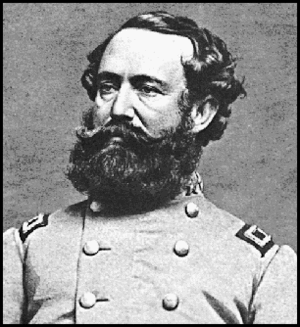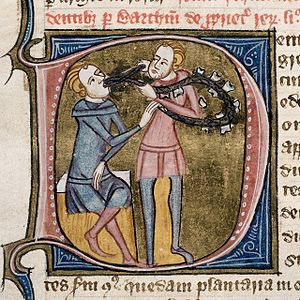Another guest blog post from our friendly prepper tooth doctor.
Makes me want to visit my own dentist ASAP.
* * *
Let’s imagine that our worst imaginations of the future economic/political/societal collapse come true. We are in our “undisclosed bunker location” surviving day by day without all of the creature comforts that we are used to. A random thought or fear pops into our head…Our local dentist might as well be on the other side of the moon. What is going to happen to our teeth? What are we going to do if we have a tooth ache? What if we get an abscess? What if Suzie did not get her wisdom teeth removed like the dentist wanted? The subject of these next few blog postings will explore aspects of surviving without having a kindly dentist a phone call away.
There are few historical examples of a modern western population suddenly cut off from dental care. What can be called modern dentistry in Europe and the USA dates back to the 1920’s, I would probably date ”Modern” as the common use of local anesthetics and some sort of powered drill. The only well documented group that went through something close to TEOTWAWKI that I am aware of is the POW’s held by North Vietnam during the 60’s and 70’s. For the most part these men began their captivity as typical fighter pilots, “Ten feet tall and Bullet proof”. They were the tip of the spear mentally and physically. There were plenty of opportunities for these men to have their needed dentistry done on a regular basis. Many of them went into captivity with no needed dental treatment. Some, however, for one reason or another had unmet needs prior to their capture. These two groups did have some slightly different results during their stay in the North. When they pulled the ejection bar on their airplane, their lives were abruptly and indefinitely changed. Their story is as close as I can come to any documented account of the untoward scenarios that we envision.
The experience of these men from a dental standpoint is especially valuable, because when they were released, the medical and dental community realized that in addition to the debt that a grateful nation owed these heroes, this was a rare opportunity to learn from the experience of these men. Careful debriefing, examinations, and records were taken for these men when they came home, and compared to their condition prior to captivity. Several summary articles were published at the time and are still available on Medline. Being a Cro-Magnon dentist myself, I remembered some of these from the mid seventies, and downloaded them for some memory refreshment. Below are some of the bullet points that stood out to me from this review.
What can we learn from the experience of these brave men?
1. The POW’s were able to maintain their oral hygiene. In fact if anything, the fear of dental issues led these men to over clean their teeth. Post captivity examination showed numerous examples of gum recession due to overzealous brushing. In addition to the cheap toothbrushes that the prisoners were given, the men fabricated their own chew sticks, tooth pics, and floss. From bamboo, bone, and thread. Tooth paste was made from charcoal, soap, and salt. For many of the men tooth cleaning became an obsession. Something within their control that they could positively affect their health.
2. Many teeth were fractured from pebbles and bone chips in their food. It was reported that the rice that they were fed was recovered from buried stores of food stockpiled by the government. It was not washed and was in nasty condition. The men quickly learned to use extra care in their chewing.
3. Many tales of self and buddy administered improvised dental first aid were noted. Sharpened nails, bamboo, bones were used to lance dental abscesses. One pilot related how he kept a fish bone to work up in the stump of his broken off incisor, as needed, to open the pathway for the pressure from an abscess to be relieved. Salt was used for poultices and rinses to help heal abscesses and inflammation.
4. The psychological impact of dental problems was emphasized by these men over and over. Bruises and burns would heal and get better, wrenched joints and broken bones would knit back together, dental problems would not get better until the men were released. Despair, anxiety, irritability, and inability to concentrate resulted from dental distress. One quote sums up this feeling:
Although this may seem a severe evaluation of so (seemingly) simple a problem as a toothache, it must be born in mind that, for the prisoner of war, relief cannot be expected until he is released from his captivity. Thus, a severe toothache may bring about a physical condition slightly detrimental to survival, but may produce a psychological condition which, to a prisoner who is isolated, may be extremely hazardous to personal survival. To the person who is sitting in a prisoner of war camp, even though at the present time he does not feel the toothache, he is aware that in the future it is going to return again, again, and again. He also knows that there is no relief in sight for this and realizes that in many cases he himself is to blame for the pain since, prior to captivity, he had the opportunity available to him to have his teeth repaired and yet chose not to do so.
5. Within the POW community, a man was chosen as “camp doctor”. He was untrained, but had some interest or had studied some kind of related pre professional college degree. One such individual stated that he had seen much suffering from teeth untreated prior to capture. It was of such great importance, that in the future, men with needed work should be prevented from being placed in harm’s way until that treatment was completed.
I feel that there are some obvious conclusions for us in the prepper community. Dental health is something that we take for granted. During the pending apocalypse the ability to find a clean well lighted clinic with a competent experienced practitioner will be severely limited. You might not die from a tooth ache, but those with a bad one may debate the merits of ending it. My recommendation is to start off with as high degree of dental health as possible. When the balloon goes up, we will be done with x-rays, crowns, root canals, implants, periodontal treatment, dentures, etc. for a long long time. We will be able to do some fillings. They will not be pretty but they should be functional. We will do a lot of extractions, but tooth replacement will be next to impossible till the new normalcy develops. The good news is that dental anesthetics should maintain enough potency to get the job done for years if not allowed to get too hot.
The Boy Scout motto: Be Prepared
Wade Hampton Tooth Doctor

- Image via Wikipedia





Keep in mind that it’s our modern diet that predisposes us to dental caries. Grains are especially cavity-producing. If your survival food includes grains, (mine does not) be very careful with your dental health…
[. . . not to mention sugars and other simple carbohydrates – Doc Cindy]
Don’t forget to read or download the famously helpful “Where There is No Dentist” found for free on several survival websites.
* * *
[Thanks for pointing this out, Dean. Where There is No Dentist can be downloaded for free in English or Spanish at http://www.hesperian.org/publications_download_dentist.php – Doc Cindy]
Interesting and informative article…. yes, we certainly do take the benefits of modern dentistry for granted. Concerning expedient dentistry, navy corpsmen (especially independent duty corpsmen, or IDCs) are expected to function more-or-less indepedently of physicians and dentists aboard ship and in the field until their Marines/sailors have access to these specialists. What training do they get in dentistry? Concerning dentistry under adverse conditions, I’d look at conditions under Japanese occupation during WWII, at such places as the infamous Burma-Thailand “Railroad of Death,” and other locations. Allied POWs in these and other places rarely received even the most basic medical or dental care, especially in the latter years of the war, when Japan itself began to suffer from severe shortages of many essential goods and services.
I would guess that survival food may be less damaging to our teeth than the crap from the convenience store. I just found this site (from a link on survivalblog.com)
Thank you, Dr. Koelker!
Last summer this dental issue really hit home. I am on disability and have no medical insurance. I went two months with an abscessed tooth before I could afford a dentist… It can make you frantic, almost hysterical very quickly.. I am so glad to find this article. None of the home remedies worked (cloves, cinnamon oil, etc)
As a family doctor, I have many patients who look to me for dental infections. Though an antibiotic is only a stop-gap measure, it can lessen the pain considerably until a dentist is available for a permanent solution. Effective antibiotics are inexpensive ($4 at discount pharmacies), as are OTC or prescription anti-inflammatory/pain medications. Our dental friend says clove oil works for dental nerve pain, not an abscess, and would have to applied down deep inside the tooth, not on the gum or tooth surface. Glad you’re better now.
For about $120, you can buy “fish antibiotics” from a variety of sources and basic dental tools on eBay. I would conside “basic dental prep to include about four recommended tools (see Survival Blog – GREAT site!), a couple of appropriate antibiotics, and a flash drive with a few You Tube “lessions” on pulling teeth. There are also basic dental text books available too.Hope I NEVER need this!
Matt
Scary? Yeah, without a doubt. What about the poor folks who will be prepared, stocked up, and won’t be able to eat well because of bad teeth? Certainly now is the time to see the dentist, get that dental work done, and make a habit of good oral hygiene.
Scary, very scary. I have to find a new dentist. Mine is retiring soon. I better get started.